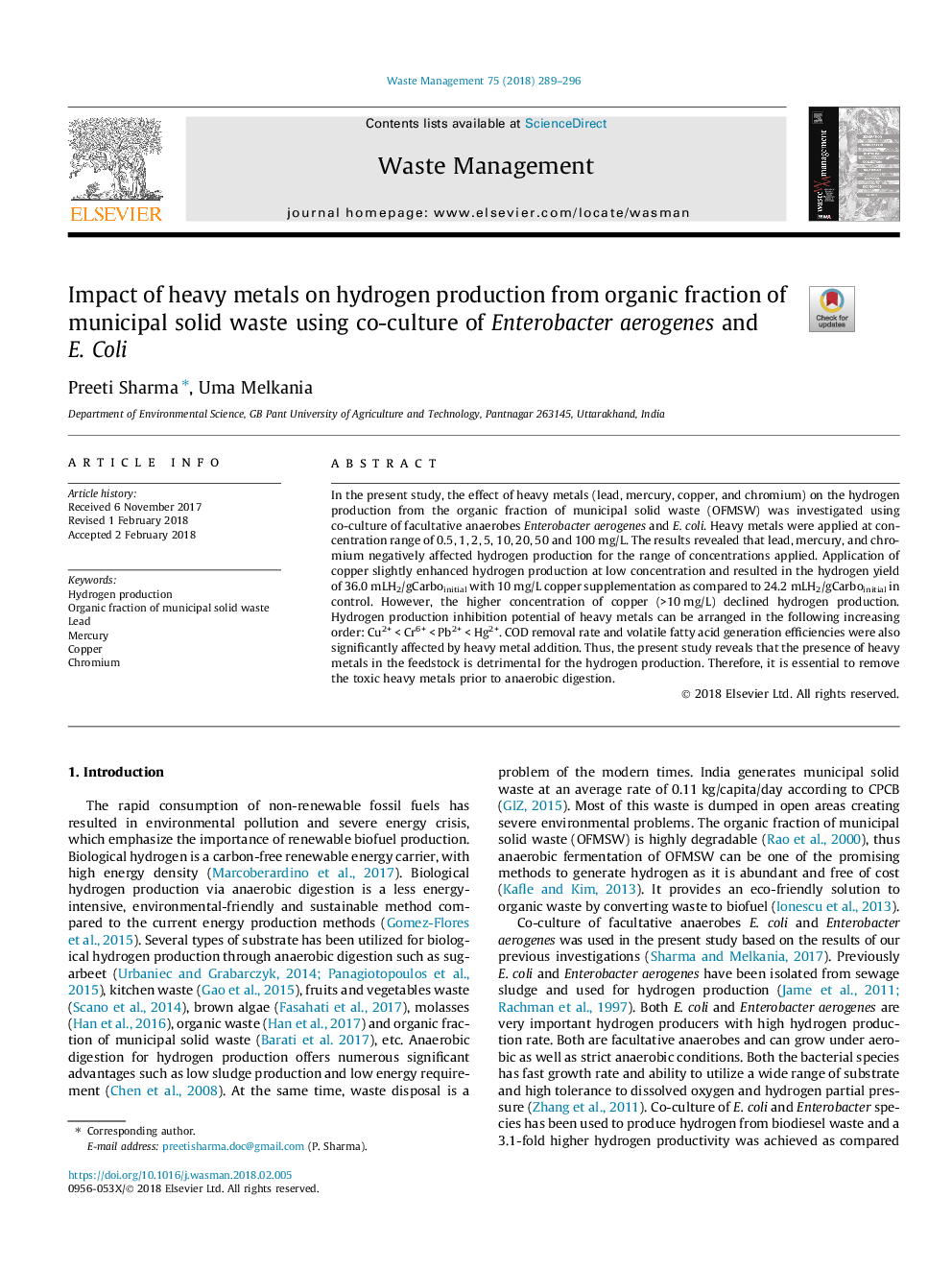| Article ID | Journal | Published Year | Pages | File Type |
|---|---|---|---|---|
| 8869839 | Waste Management | 2018 | 8 Pages |
Abstract
In the present study, the effect of heavy metals (lead, mercury, copper, and chromium) on the hydrogen production from the organic fraction of municipal solid waste (OFMSW) was investigated using co-culture of facultative anaerobes Enterobacter aerogenes and E. coli. Heavy metals were applied at concentration range of 0.5, 1, 2, 5, 10, 20, 50 and 100â¯mg/L. The results revealed that lead, mercury, and chromium negatively affected hydrogen production for the range of concentrations applied. Application of copper slightly enhanced hydrogen production at low concentration and resulted in the hydrogen yield of 36.0â¯mLH2/gCarboinitial with 10â¯mg/L copper supplementation as compared to 24.2â¯mLH2/gCarboinitial in control. However, the higher concentration of copper (>10â¯mg/L) declined hydrogen production. Hydrogen production inhibition potential of heavy metals can be arranged in the following increasing order: Cu2+â¯<â¯Cr6+â¯<â¯Pb2+â¯<â¯Hg2+. COD removal rate and volatile fatty acid generation efficiencies were also significantly affected by heavy metal addition. Thus, the present study reveals that the presence of heavy metals in the feedstock is detrimental for the hydrogen production. Therefore, it is essential to remove the toxic heavy metals prior to anaerobic digestion.
Related Topics
Physical Sciences and Engineering
Earth and Planetary Sciences
Geotechnical Engineering and Engineering Geology
Authors
Preeti Sharma, Uma Melkania,
